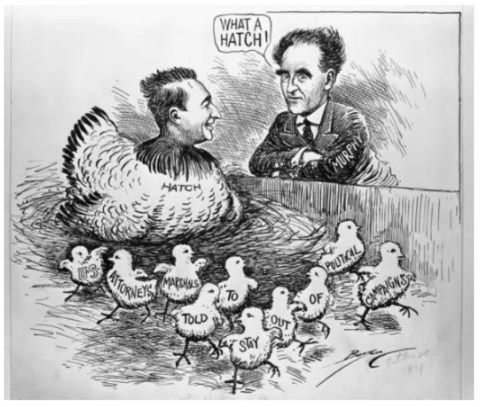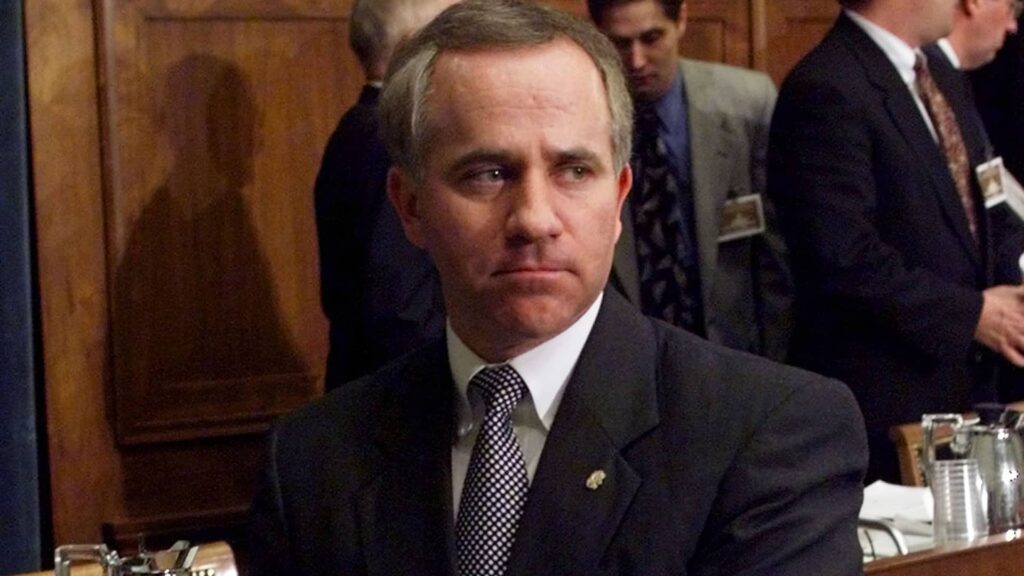On July 20, 2023, U.S. Senator Kirsten Gillibrand introduced the Ban Stock Trading for Government Officials Act, a groundbreaking piece of bipartisan legislation aimed at addressing a pervasive issue in American politics: the ownership and trading of stocks by members of Congress, senior executive branch officials, and their families. This historic bill not only seeks to ban such activities but also introduces stringent disclosure requirements and penalties for violations. In this article, we will delve into the details of this legislation and examine its historical precedents, highlighting the urgent need for reform.
The Ban Stock Trading for Government Officials Act: A Comprehensive Overview
The Ban Stock Trading for Government Officials Act, proposed by Senator Gillibrand, represents a significant bipartisan effort to curb stock trading by elected officials and senior executive branch members. The bill includes several key provisions that aim to bring about transparency, accountability, and ethical conduct in government:
- Bans Stock Trading and Blind Trusts: One of the central pillars of the bill is the prohibition of stock trading and ownership by members of Congress, the president, vice president, senior executive branch officials, and their spouses and dependents. Notably, there are no exceptions for blind trusts, which have been used in the past to ostensibly eliminate conflicts of interest. Failure to comply with this provision carries a heavy penalty of at least 10 percent of the value of the prohibited investments for members of Congress.
- Imposes Heavy Penalties for Executive Branch Stock Trading: The bill introduces strict penalties for executive branch officials who engage in stock trading. It requires them to disgorge profits from covered financial interests to the Treasury. Additionally, an automatic Special Counsel fine is imposed, equal to the value of the covered investment purchased or sold in violation of the ban, with a minimum of $10,000. The Office of Special Counsel can also recommend further civil action for substantial or extraordinary cases.
- Requires Reporting of Federal Benefits: Government officials, including members of Congress and senior executive branch employees, are mandated to report any time they, their spouse, or dependents receive a benefit of value from the federal government. This encompasses loans, agreements, contracts, grants, and payments, excluding salary, compensation, or tax refunds. Failure to file such reports incurs a penalty of $500.
- Creates Transparency in Financial Disclosure Reports: The bill emphasizes transparency by requiring the establishment of public, searchable databases containing personal financial disclosure reports and filings. It also calls for the reporting of any financial transactions as mandated by the STOCK Act.
- Increases STOCK Act Transaction Report Penalties: To deter violations, the bill raises the penalty for failing to file STOCK Act transaction reports from $200 to $500.
Historical Precedents for Limitations on Elected Government Officials and Lawmakers

The concept of imposing limitations on the financial activities of elected government officials and lawmakers is not a new one. Throughout history, various measures have been put in place to address conflicts of interest, enhance transparency, and maintain public trust. Here are some notable historical precedents:
- The Emoluments Clause: Enshrined in the United States Constitution, the Emoluments Clause prohibits government officials, including the president, from accepting gifts, titles, or emoluments from foreign governments without congressional consent. This provision serves to prevent undue foreign influence and maintain the integrity of elected officials.
- The Hatch Act (1939): The Hatch Act restricts the political activities of federal employees, including executive branch officials, to ensure that their roles are not influenced by partisan politics. It aims to uphold the principle of impartiality in government service.
- The STOCK Act (2012): Prior to the Ban Stock Trading for Government Officials Act, the most significant legislative effort to address stock trading by government officials was the STOCK Act of 2012. This act sought to prohibit insider trading by members of Congress and required them to disclose their financial transactions. While it represented a step in the right direction, its effectiveness was limited, as demonstrated by the statistics cited in Senator Gillibrand’s bill.
The Urgent Need for Reform
The statistics presented in Senator Gillibrand’s bill paint a troubling picture of the current state of affairs in American politics. Members of Congress and senior executive branch officials have been engaging in stock trading activities that raise serious concerns about conflicts of interest and ethical conduct. Consider the following alarming statistics:
Congress:
- One in three members of Congress traded stocks or financial assets from 2019 to 2021.
- One in seven members of the 117th Congress violated the STOCK Act by failing to properly report their stock trades.
- Ninety-seven members of Congress, or their spouses or dependents, traded in companies affected by their committees from 2019 to 2021.
- Over 3,700 stock trades reported by members of Congress from 2019 to 2021 potentially posed conflicts of interest.
- Members of Congress’ stock portfolios outperformed the S&P 500 by an average of 17.5% in 2022.
Executive Branch:
- Over one in five senior federal officials held stock in companies that were lobbying their agencies from 2016-2021.
- In March 2020, during the onset of the COVID-19 pandemic, there were 11,600 reported trades by senior federal officials—far more than in any other month from 2016-2021.
- Two hundred and forty senior federal officials at health agencies and the Pentagon owned stock in drug, manufacturing, and biotech companies that won federal contracts related to COVID-19.
- More than sixty senior federal officials reported stock trades in companies shortly before their departments announced enforcement actions against those companies from 2016-2021.
These statistics clearly demonstrate the pressing need for reform in the way government officials handle their financial interests. The Ban Stock Trading for Government Officials Act seeks to address these issues head-on by introducing comprehensive restrictions, increased transparency, and severe penalties for violations.
Public Support for Reform
The vast majority of Americans share the belief that stock trading should be banned for members of Congress and top executive branch officials. According to a recent poll by Morning Consult/Politico, at least 63% of Americans support such a ban. This strong public sentiment underscores the need for the Ban Stock Trading for Government Officials Act and similar reforms to ensure that elected leaders prioritize the public interest over personal financial gain.





